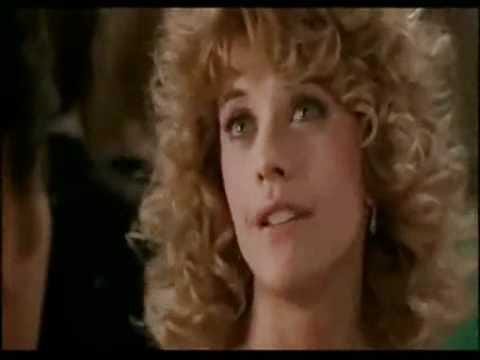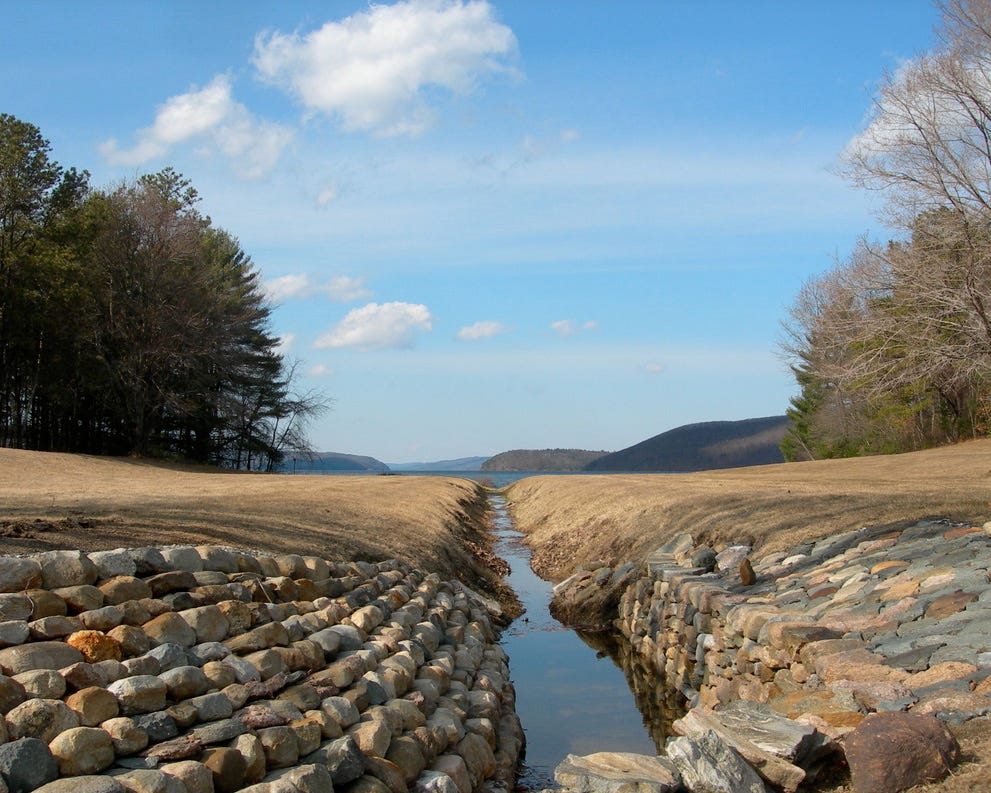Happy New Posting Day for You Are Here! There’s so much I want to do in this space in 2024, including shorter bonus posts about the news of the day as it relates to place, politics, and poetry. Expanding this project into new territory will be made much easier by posting on Tuesdays, so I appreciate you all coming along for the ride. Conceiving of and kicking off this project was one of the great thrills of my 2023, so stick around until the end of this post for a little preview of the topics and poets I’m planning to cover in 2024.
For now, though, some poetry to get you contemplating the passage of time as we continue to nurse our collective hangover.
The Meeting
by Henry Wadsworth Longfellow
After so long an absence At last we meet again: Does the meeting give us pleasure, Or does it give us pain? The tree of life has been shaken, And but few of us linger now, Like the Prophet's two or three berries In the top of the uttermost bough. We cordially greet each other In the old, familiar tone; And we think, though we do not say it, How old and gray he is grown! We speak of a Merry Christmas And many a Happy New Year But each in his heart is thinking Of those that are not here. We speak of friends and their fortunes, And of what they did and said, Till the dead alone seem living, And the living alone seem dead. And at last we hardly distinguish Between the ghosts and the guests; And a mist and shadow of sadness Steals over our merriest jests.
I’m not normally one for a sad poem, but I think we can say that this one qualifies. I consider it a sort of dark twin to the New Years classic “Auld Lang Syne”1. Instead of fondly looking back and celebrating times gone past, the narrator here is borderline tormented by his preoccupation with grief and loss. He can’t decide if meeting a friend again “after so long an absence” brings pleasure or pain. He seems only to be able to notice “how old and gray” he and his fellow partiers have become. Our poor guy can’t even “speak of a Merry Christmas/And many a Happy New Year” without succumbing to a “mist and shadow of sadness” of the ghosts of friends and relatives lost long ago.
What I like about this poem is that it’s realistic, and approaches holiday gatherings from the inside our heads—where most of us tend to hole up this time of year. New Year’s Eve/Day is a holiday that, maybe even more than Christmas, tends to get candy-coated with revelry and the recalling of only the fondest memories. The steady flow of alcohol helps with that, of course. “The Meeting,” though, reminds us that in bringing us together, the holidays can make us morose as well as merry; callous as well as kind; and grief-stricken as well as grateful. It’s all the same thing, or at least it all can and does happen at the same time. Maybe a nice balance is appropriate in the New Year: pouring one out gloomily for old times’ sake, and chasing it with a hopeful sip from the “cup of kindness” for better days ahead.
Who knows. Anyway, it’s about old friends:
Henry Wadsworth Longfellow was born and raised in Portland, Maine, which at the time was part of Massachusetts. He attended, then taught at Bowdoin, and then at Harvard. I grew up strongly associating the man and his work with New England; but maybe that’s just because “Henry Wadsworth Longfellow” sounds like a name Chat-GPT invented after being prompted for a “generic 19th century New England poet.”
But no, Longfellow was a very real person, and had a coincident friendship with another triple-named New England luminary, Ralph Waldo Emerson. Longfellow attended many of Emerson’s lectures, and Emerson made repeated efforts to bring Longfellow into the nation’s political discussion in the run-up to the Civil War.
These efforts by Emerson revealed some key differences between the two: both were antislavery men, but Emerson was a much more ardent and outspoken one. Temperamentally, Longfellow was more reserved, and disdained politics as a prelude to unwanted confrontation. After seeing his friend harangued in the 1850s following a strident speech denouncing the Fugitive Slave Laws, Longfellow lamented: “It is rather painful to see Emerson in the arena of politics, hissed and hooted at by young law-students.” What worse fate could there be?

Though different men, the two remained friends for life, which—as Longfellow’s poem implies—ended up the same for both of them, as it does for us all. Time passes, changes us, “oldens” us, and—eventually—takes us one way or the other. The story goes that at Longfellow’s funeral, Emerson, in the throes of dementia, “paid his respects at the poet’s casket twice,” apparently forgetting he had done so already. “The gentleman we have just been burying was a sweet and beautiful soul,” he reportedly whispered to his daughter after the funeral, “but I forget his name.”
At this point in his advanced life, Emerson could, as his friend Longfellow described, “hardly distinguish/Between the ghosts and the guests.” His mind was not what it used to be. But somewhere in his heart—a place the ravages of time can’t touch—he had no difficulty recognizing the “sweet and beautiful soul” of his old friend. He died just a month after Longfellow in 1882. Time comes for us all; but it doesn’t have to do so before we come around to appreciate the bounty of life, language, and genius that’s all around us.
In revisiting Longfellow’s poem for this post, I learned that in the 1870s, he edited an anthology called Poems of Place, whose 8,000(!) pages contained more than 4,000(!) poems representing the lives and environments from specific places across the entire globe.
It was a monumental logistical effort. Longfellow sourced these many thousands of poems from their original authors, obtained “Americanized” translations of them (or translated them himself), and compiled them into a single collection: a “place capsule” of sorts, a snapshot of life around the globe through poetic verse, at a time when physical movement around the globe wasn’t so easy. But, as Longfellow assures us in the preface, it was worth it:
It is the voice of the Poets expressing their delight in the scenes of nature, and, like the song of birds, surrounding the earth with music… these poems have an indescribable charm, as showing how the affections of men have gone forth to their favorite haunts, and consecrated them forever.
And yet, even though this anthology of poetry is about as on-brand for this newsletter as it gets, a pre-dementia Ralph Waldo Emerson had serious disagreements with Longfellow’s project. "The world is expecting better things of you than this,” Emerson chided the poet at the time. “You are wasting time that should be bestowed upon original production." Maybe Emerson did just want some more original Longfellow content (it’s all about the content), but a 2020 New Yorker review by James Marcus of a recent Longfellow biography elucidates the depths of the disagreement. It is, indeed, one about place—and perhaps even about which of these “quintessential New Englanders” is the more authentic of the two.
Some, like Emerson, argued that the ballast of European culture would need to be cast off—that the new nation should be made up from scratch. But Longfellow, with his vast mental reservoir of languages and literatures, felt otherwise. He was, as we now say, a globalist. Instead of Emerson’s slash-and-burn approach to America’s cultural patrimony, he preferred Goethe’s notion of Weltliteratur—the idea that all poems and cultures were in constant, chattering, shape-shifting dialogue.
Maybe I’m overly non-confrontational, but I think they’re both right. Like “The Meeting” and “Auld Lang Syne,” we have two opposed but equally important pieces to the puzzle. On the one hand, I’m sympathetic to Emerson’s sense—shared with contemporaries like Walt Whitman—that America’s unique founding and relative youth required a clean cultural (thus, poetic) slate. A century and a half later, our troubled but still-standing nation has a fine collection of “quintessentially American” poets, novelists, and artists that fulfill Emerson’s prescription.
But Longfellow has, I think, the more timeless view, even as his poetry laments its passage. Poetry—and art in general—is not a just moment, a picture, or a single group of words, but a conversation unfolding in all places, at all times. To Longfellow, lopping off all non-American culture probably felt not so much patriotic as closed-minded, or even nativist. Art can cross boundaries of nations and in language; and in these troubled times, I think we can use all the help we can get.
Music
Portland, Maine, by Donovan Woods (Apple/Spotify)
We’ve got a few parallels this week between the Music and Poetry picks. In learning about Longfellow, his Portland birthplace immediately brought this lovely acoustic ballad from Donovan Woods to mind. It’s also appropriate because it’s a love song, but a sad one; about saying goodbye because, even in our “the world is flat” digital age, geographic distance is sometimes just too big a hurdle to overcome. I’ve learned this lesson in my own life, and I’m sure many of you have, as well. This song is 3 minutes, 23 seconds of mixed feelings, which seemed appropriate for the kind of ambivalence we saw in “The Meeting” above.
A Peek at 2024
Anyone on television, in the newspaper, or on a podcast who tells you they know with certainty what 2024 has in store—in elections, culture, or international affairs—is either delusional and/or trying to sell you something. I do the politics stuff for a living and don’t have a clue.
For me, this makes it all the more important that we all find ways to internalize as much creativity as possible from artists and writers we love, and ideally—if time and life allows—find ways to be creative ourselves. This newsletter is one way I try to accomplish both of those things for myself. So in the interest of transparency, I thought I’d offer a little peek at some of the topics, writers, and poets I have on tap for the year ahead.
First, you can expect more about the intersection of place and politics. I’ll be covering, among other things:
The long century of decline for the Democratic Party in the American South
Partisan segregation in America’s cities
Lessons on (actual, real-life, not-made-up) voter fraud from 1850s Kansas
How we ended up with Iowa and New Hampshire as early primary states
Second, I’ll be dipping more into cultural questions and histories around place and geography, including:
A brief history of location-based “check-in” apps like Foursquare
Wrestling with national identity, with an assist from Walt Whitman
The beach town Taylor Swift and I both have a soft spot for
The Artemis missions, and what it means to go to the moon for the right reasons
Meditation, attention, and “touching grass” in what’s sure to be a hellish year

Finally, of course, you can expect to hear from a fair few of my favorite poets, including:
John Updike
Mary Oliver
Jane Hirschfield
Wendell Berry
Edna St. Vincent Millay
Robert Bly
John O’Donohue
I hope at least some of that sounds enticing to you. But I know that I, at least, cannot wait to get started.
Insert your favorite version of this tune here (or better yet, in the comments!) but my current pick is Trousdale’s version from 2022.






Wow I had no idea about Longfellow’s anthology!
I loved this new post AND like that it comes on Tuesdays!